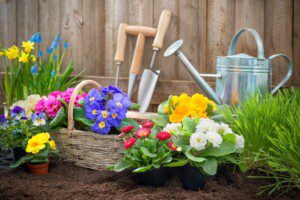Make Your Garden Eco-Friendly in Southern MD
Unveiling Little-Known Tips and Tricks to Make Your Garden More Eco-Friendly in Southern MD
Gardening is not only a rewarding hobby but also an opportunity to contribute positively to the environment. By implementing eco-friendly practices in your garden in Southern MD, you can create a thriving ecosystem that supports biodiversity, conserves water, reduces waste, and minimizes the use of harmful chemicals. In this article, we will explore some lesser-known tips and tricks to make your garden more eco-friendly, allowing you to cultivate a sustainable and vibrant outdoor space.
- Embrace Companion Planting: Companion planting is a technique that involves growing mutually beneficial plants together. By strategically pairing certain plants, you can naturally ward off pests, reduce the need for pesticides, and promote healthy growth. For instance, planting marigolds alongside vegetables can deter harmful insects, while attracting pollinators like bees and butterflies.
- Build Healthy Soil with Compost: Creating rich and fertile soil is essential for a thriving garden. Instead of relying on synthetic fertilizers, opt for composting. Composting kitchen scraps, yard waste, and other organic materials not only diverts waste from landfills but also provides your plants with nutrient-rich soil. Compost improves soil structure, retains moisture, and reduces the need for chemical fertilizers.
- Collect Rainwater: Water conservation is crucial for an eco-friendly garden. Install rain barrels or cisterns to collect rainwater from gutters and downspouts. This free, untreated water can be used for watering plants, reducing your reliance on municipal water sources. Additionally, utilizing soaker hoses or drip irrigation systems minimizes water waste by delivering water directly to plant roots.
- Implement Integrated Pest Management: Integrated Pest Management (IPM) is a holistic approach to pest control that emphasizes prevention and minimal use of pesticides. Encourage natural predators like ladybugs and birds that feed on garden pests. Use physical barriers, such as row covers or netting, to protect plants from insects. Regularly monitor plants for signs of pests or diseases and take appropriate action, such as hand-picking or using organic insecticidal soaps as a last resort.
- Create Wildlife-Friendly Habitats: Invite beneficial wildlife into your garden by providing them with food, water, and shelter. Install bird feeders, birdhouses, and birdbaths to attract a variety of avian visitors. Incorporate native plants that provide nectar, pollen, and seeds for bees, butterflies, and other pollinators. Create small water features like a shallow dish or a mini-pond to offer drinking and bathing opportunities for wildlife.
- Opt for Organic and Non-Toxic Solutions: Avoid using chemical pesticides, herbicides, and fertilizers that can harm beneficial insects and contaminate the soil. Instead, opt for organic and non-toxic alternatives. Neem oil, for example, is an effective insect repellent, while homemade herbicide solutions using vinegar and salt can help control weeds. Explore natural approaches to garden care that are safe for the environment and your health.
Making your garden more eco-friendly is not only beneficial for the environment but also enhances the overall health and beauty of your outdoor space. By embracing companion planting, composting, rainwater collection, integrated pest management, creating wildlife habitats, and using organic solutions, you can create a sustainable garden that thrives with minimal impact on the ecosystem. Let's work together to cultivate gardens that harmonize with nature and contribute to a greener, healthier planet.

 Gardening is not only a rewarding hobby but also an opportunity to contribute positively to the environment. By implementing eco-friendly practices in your garden in Southern MD, you can create a thriving ecosystem that supports biodiversity, conserves water, reduces waste, and minimizes the use of harmful chemicals. In this article, we will explore some lesser-known tips and tricks to make your garden more eco-friendly, allowing you to cultivate a sustainable and vibrant outdoor space.
Gardening is not only a rewarding hobby but also an opportunity to contribute positively to the environment. By implementing eco-friendly practices in your garden in Southern MD, you can create a thriving ecosystem that supports biodiversity, conserves water, reduces waste, and minimizes the use of harmful chemicals. In this article, we will explore some lesser-known tips and tricks to make your garden more eco-friendly, allowing you to cultivate a sustainable and vibrant outdoor space.